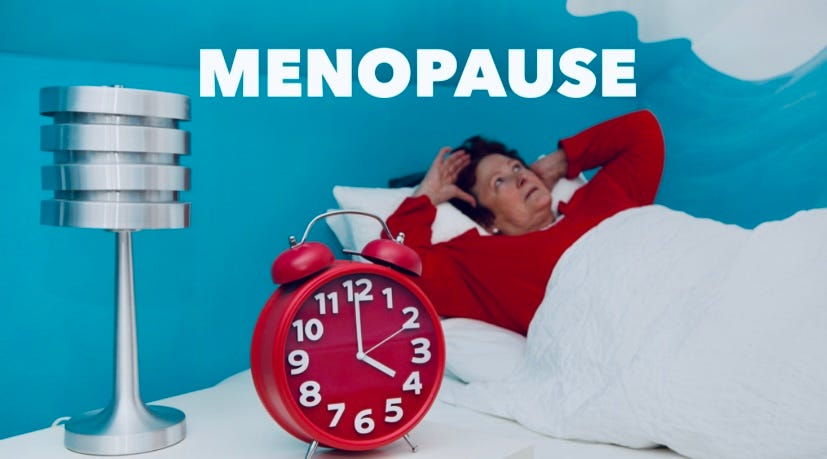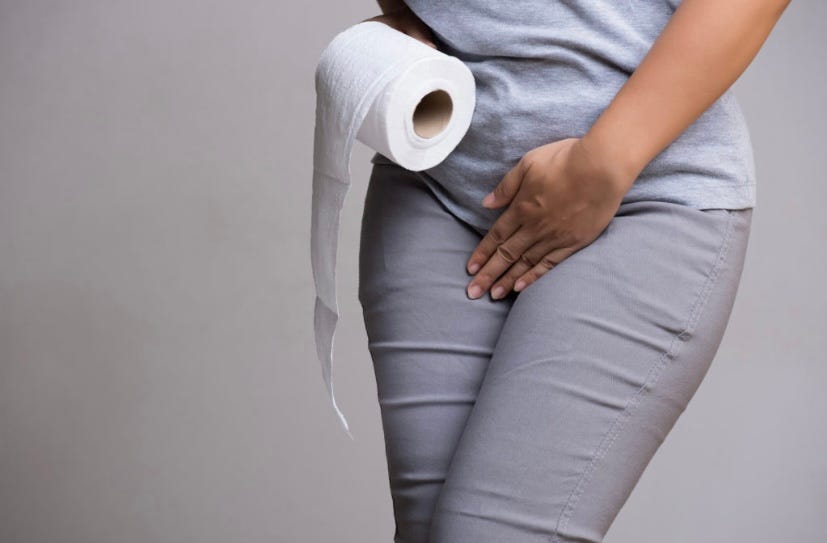Menopause is a natural phase in a woman’s life when her menstrual cycles cease, and she is no longer fertile. During menopause, hormonal changes occur, leading to a decrease in estrogen and progesterone levels.
While it might be embarrassing to talk about masturbation, particularly for those of us raised in generations where it was considered taboo to do it let alone talk about it, masturbation is a completely safe and natural way for women to explore their sexuality and experience sexual pleasure. It can have various positive effects, especially during and after menopause:

1. Stress Relief: Let’s face it. Politics is stressful. Aging is stressful. Money is stressful. Work is stressful. Family can be stressful. In other words, Life IS stressful. Masturbation can help reduce stress and promote relaxation by triggering the release of endorphins, the body’s feel-good hormones.

2. Improved Sleep: While everyone connects hot flashes to menopause, poor sleep quality and sleep disturbance are lesser-known changes that can occur during menopause. Women should aim for between seven and eight hours of quality, uninterrupted sleep per night. The rule isn’t hard and fast, though; some people need less sleep and others need more. In general, if you’re waking up regularly during the night and feel that your sleep isn’t restful, those are signs that maybe you’re not getting good sleep. The release of hormones during sexual arousal and orgasm can contribute to better sleep, which can be beneficial for women experiencing menopausal sleep disturbances.

3. Vaginal Health: Vaginal atrophy (atrophic vaginitis) is thinning, drying and inflammation of the vaginal walls that may occur when your body has less estrogen. Vaginal atrophy occurs most often during or after menopause.
For many women, vaginal atrophy not only makes intercourse painful but also leads to distressing urinary symptoms. Because the condition causes both vaginal and urinary symptoms, doctors use the term “genitourinary syndrome of menopause (GSM)” to describe vaginal atrophy and its accompanying symptoms.
Regular sexual activity, including masturbation, can help maintain vaginal health by promoting blood flow to the pelvic region, and making your vaginal tissues more elastic. This can reduce the risk of vaginal dryness and discomfort associated with menopause.

4. Emotional Well-being: Masturbation can positively impact mental and emotional well-being by enhancing mood and fostering a sense of self-pleasure and self-acceptance at a time when some women experience mood swings due to menopausal changes in their hormones.

5. Pelvic Floor Health: Engaging in masturbation can help exercise the pelvic floor muscles, which may strengthen them and contribute to better bladder control. Reduced levels of estrogen starting around menopause can cause thinning of the lining of the urethra, the short tube that passes urine from the bladder out of the body. The surrounding pelvic muscles also may weaken with aging, a process known as “pelvic relaxation.” As a result, women at midlife and beyond are at increased risk for urinary incontinence, or the involuntary leakage of urine. The main risk factors for developing urinary incontinence are vaginal childbirth and increased age.
The most common types of urinary incontinence in women are:
- Stress incontinence, which is caused by weak pelvic floor muscles. The most common symptoms are leakage of urine with coughing, laughing, sneezing, or lifting objects. Stress incontinence is common during perimenopause but typically doesn’t worsen because of menopause.
- Urge incontinence (also called “overactive bladder”), which is caused by overly active or irritated bladder muscles. The most common symptom is the frequent and sudden urge to urinate, with occasional leakage of urine.

6. Sexual Satisfaction: Masturbation allows women to explore their bodies, desires, and preferences, which can lead to enhanced sexual satisfaction and better communication with sexual partners. Many women over 50 but even over 40, were raised with the notion that sex is about having children. While you cannot have children without sex, sex is not only for making babies. It can offer an amazing closeness with another person, feels good, which is never a bad thing and is even good exercise. What better way to enjoy it than to know your own body really well.
It’s important to note that sexual desire and response can vary among individuals, and what is considered healthy and normal can differ from person to person. As with any sexual activity, the key is to engage in masturbation in a manner that feels comfortable, consensual, and respectful of one’s own boundaries.
If you have specific concerns or questions about sexual health after menopause, it’s recommended to consult a healthcare professional who can provide personalized advice and guidance. Overall, embracing one’s sexuality, exploring pleasure, and staying attuned to one’s body can contribute to a positive and fulfilling post-menopausal experience.




